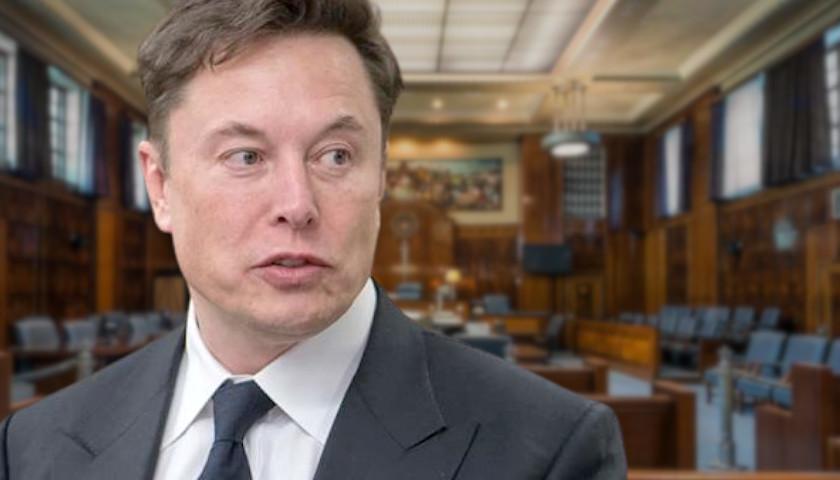by Bethany Blankley
Florida is once again at the center of a Twitter war, this time by an Orlando pension fund attempting to slow its purchase after Gov. Ron DeSantis said the state was looking into ways it can potentially “hold accountable” Twitter’s board of directors.
The city of Orlando’s Police Pension Fund filed a class action lawsuit May 6 in an attempt to block or slow the sale of Twitter. It argues Delaware law prevents billionaire Elon Musk from immediately purchasing Twitter because it alleges he’s “an invested stockholder.”
The lawsuit could hold up Musk’s $44 billion approved purchase of Twitter until 2025 if a judge rules in the plaintiffs’ favor.
The $734 million pension fund, the only plaintiff in the lawsuit, filed in Delaware Chancery Court. Twitter, Inc., Parag Agrawal, Mimi Alemayehou, Jack Dorsey, Egon Durban, Martha Lane Fox, Omid Kordestani, Fei-Fei Li, Patrick Pichette, David Rosenblatt, Bret Taylor, Robert Zoellick, and Elon Musk are named as defendants.
On April 25, Twitter agreed to Musk’s terms to purchase its entire stock at $54.20 a share in cash, valued at roughly $44 billion.
However, the lawsuit alleges the sale “may not lawfully close until 2025 absent approval by the affirmative vote of 66 2/3% of Twitter’s voting stock not ‘owned’ by Musk,” citing Section 203 of Delaware corporate law.
Section 203 prohibits corporations from engaging in any business with any stockholder for at least three years after the date the stockholder owns at least 15% of the corporation’s outstanding stock.
Musk owned 9.6% of Twitter’s outstanding voting stock when its board approved the sale. But because of an arrangement he reportedly had with Twitter founder Jack Dorsey and Musk’s financial adviser Morgan Stanley, the plaintiffs argue Musk was an “interested stockholder” representing more than 15%. Dorsey owned 2.4%, and Morgan Stanley 8.8%, at the time of the sale.
The lawsuit is asking the court to declare that Musk is an “interested stockholder” and to hold the members of Twitter’s board accountable for not approving the merger on the condition that two-thirds of stockholders vote for it.
In his initial filing with the SEC, Musk said he wanted to purchase Twitter because “I believe in its potential to be the platform for free speech around the globe, and I believe free speech is a societal imperative for a functioning democracy. However, since making my investment I now realize the company will neither thrive nor serve this societal imperative in its current form. Twitter needs to be transformed as a private company.”
After Musk’s bid, the board sought to adopt a shareholder rights plan or “poison pill” to block him from purchasing the company. If Musk’s acquisition was greater than 15% of Twitter’s outstanding common stock it could then trigger a right for stockholders to purchase additional stock at a considerable discount.
After hearing that Twitter was considering “a poison pill to thwart” his offer, Musk tweeted, “If the current Twitter board takes actions contrary to shareholder interests, they would be breaching their fiduciary duty. The liability they would thereby assume would be titanic in scale.”
The Orlando Police Pension Fund appears to support the poison pill in the brief. It states, “Musk began laying the groundwork for a hostile tender offer to acquire Twitter over the Board’s objection,” and the “Twitter Board capitulated in the face of Musk’s pressure” by unanimously approving Musk’s offer.
But DeSantis disagrees. After hearing of the poison pill option, he immediately announced that Florida “was looking at ways the state of Florida potentially can be holding these Twitter board of directors accountable for breaching their fiduciary duty.”
He also said the state’s investment in Twitter, which happened before he became governor, “hasn’t been exactly great on returns on investment. It’s been pretty stagnant for many, many years. To me I think that’s probably an injury to the fund.”
Last December, Florida began divesting funds in what DeSantis describes as “woke corporations.” He and two other trustees of the State Board of Administration voted to retake “control of the state pension fund’s proxy voting from outside fund managers who may pursue social ideologies inconsistent with the state’s values or the financial interests of the state’s investments, and by determining the state’s exposure to Chinese investments.”
DeSantis also took other actions last year “to combat woke corporate ideology and malign foreign influence.”
While Florida looks into divesting from Twitter, the city of Orlando, if its political leaders choose to do so, could also divest its pension fund from Twitter and other companies that censor speech.
Neither Twitter nor Musk have commented on the lawsuit.
In the wake of threats to Supreme Court justices and protests outside their homes, Musk over the weekend appeared to indicate concerns about his safety. On Sunday night, he tweeted, “If I die under mysterious circumstances, it’s been nice knowin ya.”
– – –
Bethany Blankley is a regular contributor at The Center Square.








